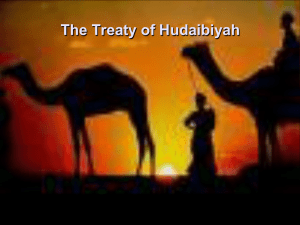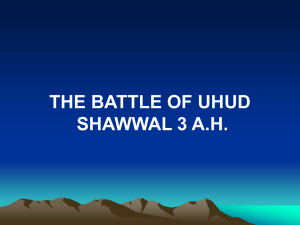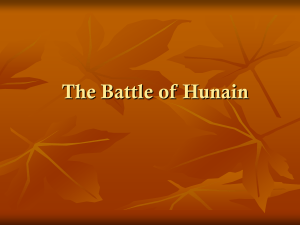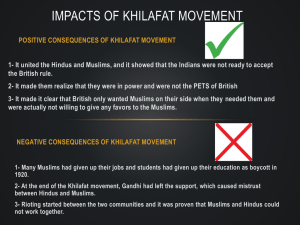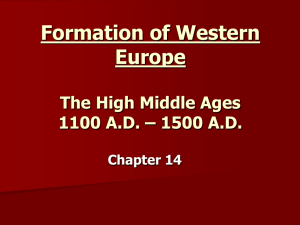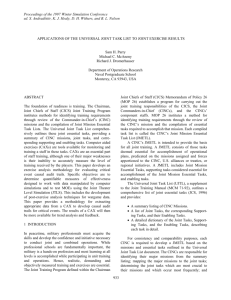The Battle of Badr - Al Fajr | Institute of Islamic Sciences
advertisement
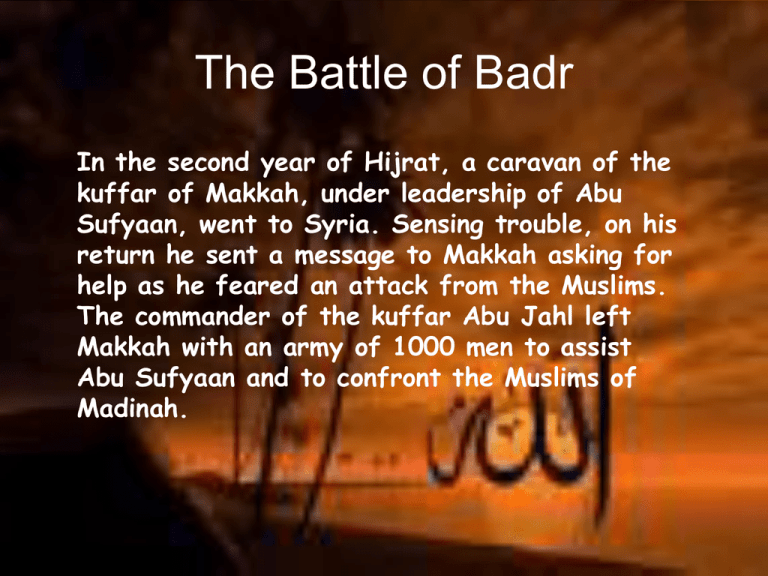
The Battle of Badr In the second year of Hijrat, a caravan of the kuffar of Makkah, under leadership of Abu Sufyaan, went to Syria. Sensing trouble, on his return he sent a message to Makkah asking for help as he feared an attack from the Muslims. The commander of the kuffar Abu Jahl left Makkah with an army of 1000 men to assist Abu Sufyaan and to confront the Muslims of Madinah. As soon as Abu Sufyaan got his caravan safely away from the Muslims, he sent another message to Makkah that they were safe and no longer required assistance. Abu Jahl was looking for an excuse to attack the Muslims. He had been making preparations for almost a year, thus he was not prepared to turn back after receiving the message from Abu Sufyaan. He marched towards Madinah with an army of 1000 men, 700 camels and 300 horses. Abu Jahl's men were well trained and well armed with spears, swords, bows and arrows, and shields. On hearing the news that the Kuffaar of Makkah had left with 1000 men to destroy the Muslims, Rasulullah made mushwarah (consultation) with the sahaba at Masjid-e-Nabwi in Madinah. At the Mashwarah, Hazrat Abu Bakr Siddique (R.A.), Hazrat Umar (R.A.) from Muhajireen and Hazrat Saad bin Mu'az from the Ansaar and the rest of the Muslims showed their willingness and desire to defend Islaam against falsehood. When Rasulullah was satisfied with the decision, he began preparations for the defence of Islaam. Rasulullah left Madinah with 313 men including some teenage boys. They only had 3 horses, 70 camels and a few swords. When they reached BADR, which was a mountainous region, Rasulullah made dua to Allah and pleaded : 'O Allah! should this small group of believers perish this day, no one will be left on earth to worship you and carry your message to the world'. The battle took place on the 17th of Ramadhaan 2nd yr of A.H. Allah sent His mercy and the Kuffar lost the battle at the hands of the Muslims. Seventy of the Kufaar including the arch enemy of Islaam, Abu Jahl were killed and as many as seventy were taken as prisoners-of-war. Fourteen Muslims were martyred in the battle. It was a battle between good and evil, falsehood was defeated and Truth triumphed. The success of the Battle of Badr considerably strengthened the Muslims and their cause. Terms of Treaty of Hudaibiyah (1) The Muslims would return to Madinah without performing Umrah. (2) They would come for Umrah the following year, and would stay in Makkah for only three days. (3) They shall not come bearing arms except the sword. (4) They would not take any Muslim living in Makkah to Madinah, and would not stop any Muslim from staying in Makkah. (5) If any Makkan Muslim went to Madinah the Muslims would return him to Makkah, but if any Muslim from Madinah went to Makkah he would not be returned to Madinah. (6) The Kuffar would neither attack Muslims nor help others against them, but would remain neutral in case of Muslims fighting a third party. (7) All the Arab tribes shall be free to enter into alliance with whichever party they like.
